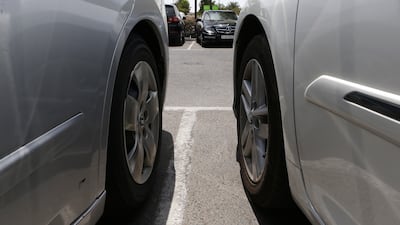Dubai Police have issued a warning over the deadly dangers of carbon monoxide poisoning to motorists who soup up their cars in a bid to boost speed and performance.
Maj Gen Ahmed Bin Gulitha, director of the force's forensic science and criminology department, said six people have died this year as a result of carbon monoxide poisoning while in cars.
He said such potentially lethal incidents often occur when cars have been modified by their owners in an effort to increase speed.
“In a recent study by Dubai Police, we found the deaths and injuries usually happened in modified cars after changing the engine or oil filters to boost the speed,” said Maj Gen Bin Gulitha.
“The gas poses a significant threat to people who spend a long time in cars running in open or enclosed spaces, if inhaled in high concentrations.”
Carbon monoxide is produced when fuels such as gas, oil and coal do not burn up completely.
The risk it poses is accentuated by the fact it is odourless, colourless and tasteless. For these reasons it is often referred to as a "silent killer".
Common causes of carbon monoxide poisoning in vehicles include defective exhaust and emission systems, poorly tuned engines, and cars running in enclosed spaces such as garages.
Car maintenance is key
Maj Dr Mohammed Al Qasim, director of the force's forensic engineering section, urged motorists to keep cars well maintained.
“Some incidents happened inside old cars that did not go through regular maintenance," he said.
"Other incidents happened in modified cars that reduce the quality of air inside the vehicles."
Police cautioned drivers against sleeping in parked cars within enclosed areas, such as mall car parks, with the air conditioning on.
Maj Dr Al Qasim recounted an incident in which a driver died of carbon monoxide poisoning while waiting in a car at a shopping centre.
The man worked as a driver and fell asleep while waiting for his employer to return.
“He locked the windows and slept while the AC was on. The woman returned after shopping and found him dead. He died after inhaling the carbon monoxide gas,” said Maj Dr Al Qasim.
The officer advised motorists not to fall asleep inside their vehicles, adding that people should not stay inside stationary vehicles with the engine running for more than 20 minutes, particularly during the summer months.
Dr Sreehari Pillai, a specialist in internal medicine at NMC Speciality Hospital in Abu Dhabi, previously told The National that when carbon monoxide is breathed in, it starves the body of oxygen.
“What is so tragic about it is that it has no smell or colour for us to detect. It is completely invisible,” he said.
Symptoms of carbon monoxide poisoning include headaches, fatigue, dizziness, shortness of breath and nausea.
In some cases, however, people may present with no symptoms, offering no warning signs against the health threat.
“People gently fall asleep, go into a coma and then they pass away from inhaling the gas,” said Dr Pillai.
Dr Pillai called on people to be vigilant and, if they notice someone sleeping inside a vehicle, “open the windows quickly, before the low oxygen level in the blood damages the brain”.


